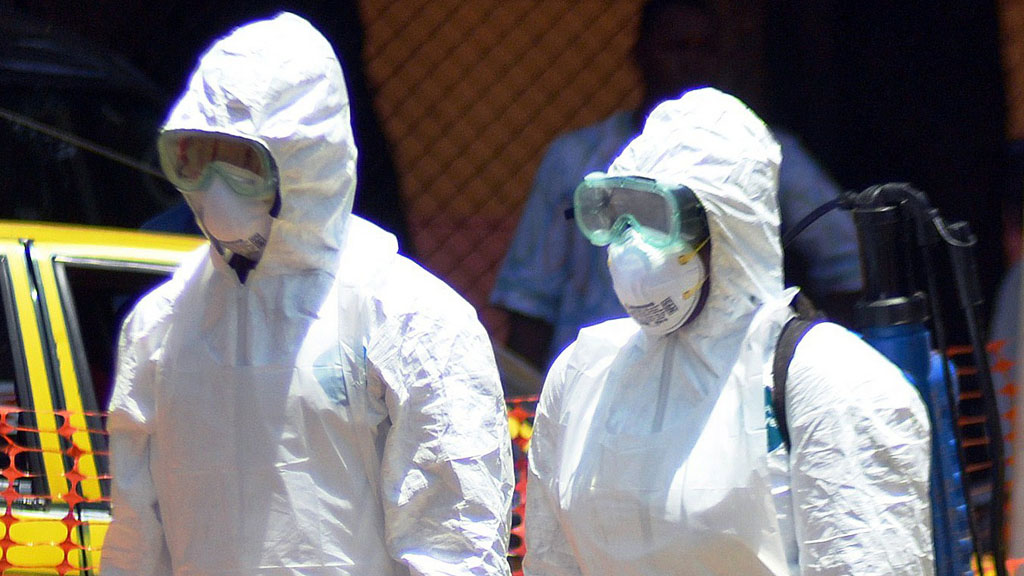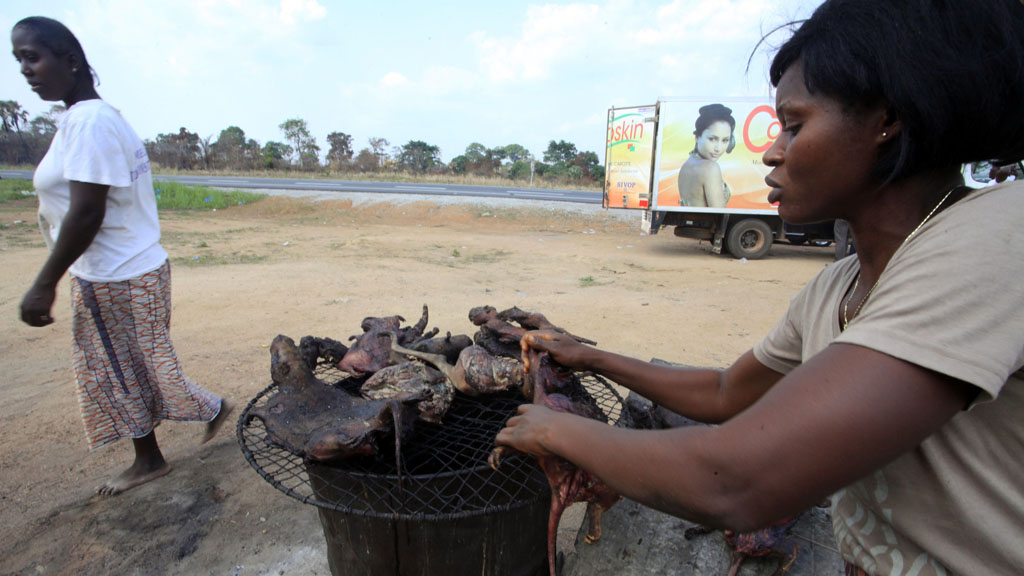WHO plays down Guinea Ebola outbreak despite 80 deaths
The World Health Organisation says an outbreak of the incurable disease in Guinea is still “relatively small” compared to past epidemics, after charity workers called it “unprecedented” in scale.

WHO spokesman Gregory Hartl said there were 122 suspected and confirmed cases of the disease in the west African country.
Some 80 people had died in Guinea, while four people had died in neighbouring Liberia out of seven suspected and confirmed cases, he said. There have been no confirmed cases in Sierra Leone.
Mr Hartl said that while the outbreak was serious, it was “relatively small still”. The biggest ever ebola outbreak – which began in Uganda in 2000 – involved more than 400 cases.
But the medical charity Medecins Sans Frontieres (MSF) painted a more alarming picture, saying cases have been recorded in many different areas of Guinea including the capital, Conakry. Some of the locations are hundreds of miles apart.
MSF epidemiologist Michel Van Herp said: “We are facing an epidemic on a scale that has never been seen before, especially if you look at the number of cases in different areas. There have been cases in Nzerekore, Macenta, Kissidougou, Gueckedou and now in Conakry.
“We are facing the most aggressive strain of Ebola, the ‘Zaire’ strain. It’s a strain that kills more than nine out of 10 people.”
Mr Van Herp said the best his charity could do was to stabilise patients in the hope that their immune system fights off the infection.
He said: “We aim at making infected people stronger. We ensure that their bodies are not dehydrated, so they are able to produce antibodies that will clean their bodies of the virus.”

What is Ebola?
The ebola virus disease kills seven out of 10 infected people on average.
It was first identified in 1976 after two simultaneous outbreaks in Sudan and in the Democratic Republic of Congo, near the Ebola river, which gave the disease its name.
The WHO has recorded 23 outbreaks since then, all of them in Africa. The only known European cases involve scientists in laboratories accidentally pricking themselves with needles carrying the virus.
If all 80 deaths in Guineau are confirmed as cases of ebola, this would be the deadliest episode since 149 people died in 2007 in Uganda.
Ebola often infects people living in rural and forested areas and is first introduced to the human population through the handling of infected wild animals, before being passed on from person to person.
Mourners have become infected by handling the bodies of victims, and medics have caught ebola through contact with patients.
It is classed as a haemorrhagic fever, causing internal and external bleeding along with a wide range of other symptoms that rapidly overwhelm the victim.
The Zaire variant of the disease has been known to kill 90 to 100 per cent of infected patients, making it one of the deadliest viruses known to medical science.
There is no known cure or vaccine.

The WHO has sent medical teams, supplies and equipment to Guinea and said it was working with the local authorities to prevent the spread of the disease.
Mr Hartl said the organisation does not recommend travel or trade restrictions.
He added that it was not the first time Ebola been seen in a capital city, where infected people seek better medical attention.
Nevertheless, neighbouring Senegal closed its land border with Guineau over the weekend and suspended weekly markets near the border.
The Senegalese musician Youssou N’Dour called off a weekend concert in Conakry, and the regional airline Gambia Bird delayed the launch of services to the capital due to begin on Sunday.
Border screening has been introduced at the frontier with Sierra Leone and officials refused to allow bodies to be transported across the border for burial.
On Sunday, Guinea’s President Alpha Conde late on Sunday appealed for calm, saying: “My government and I are very worried about this epidemic.”
He ordered Guineans to take strict precautions to avoid the further spread of the diseases, adding: “I also call on people not to give in to panic or believe the rumours that are fuelling people’s fears.”
-
Latest news
-
Local Elections Debate: voters question five main parties41m

-
Local Elections: Conservatives face 400 seat loss exclusive analysis reveals4m

-
Post Office Inquiry: ‘no cover-up’ insists former executive2m

-
Scotland politics: SNP leader future in doubt after opposition move3m

-
Military horses rampage through streets of London2m

-




